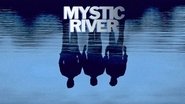Peter Kettle
This Clint Eastwood directed film, 'Mystic River', is based on the brilliant novel by Dennis Lehane. The word 'stunning' gets overused but the performances by the cast were little short of that. Sean Penn and Tim Robbins deserved their Oscars; Kevin Bacon and Laurence Fishburne; Marcia Gay Harden and Laura Linney; and a knockout range of fine American actors prove again how deep is the talent in the American movie business. Eastwood's no nonsense direction pushed the narrative along with concision and craftsmanship; he is a master of the subtle 'who did what' drama, such as this, and I bet it came in under budget and on time. (IBDM says $25m budget, box office $157m). My wife and I were gripped by this story of a generation growing up and coalescing later in a Boston suburb. The real Mystic River is seven miles long. It lies to the north of Boston and flows approximately parallel to the lower portions of the Charles River. It flows from the Lower Mystic Lake and travels through the Boston-area communities of Arlington, Medford, Somerville, Everett, Charlestown, Chelsea, and East Boston. The river joins the Charles River to form inner Boston Harbor. And that brought me to Robert Lowell and his Charles River poem, for no good reason other than the sheer quality of the original book, this film and that wonderful poem... All three are superb.
sg-02808
Not enough can be said about the acting chops of our three main guys. They were all amazing. it wasn't the acting or overall plot that got me--I loved most of this movie, and may have been fine if it had faded to black as we hear Jimmy's voiceover talking about how he killed the wrong man and it can't be undone. But right after this confession, Linney makes this very chilling speech to him about how, as a father, he had to do what he had to do. I can see how a wife may say that in trying to support her husband in such a dismal situation. But her condescending remarks about the weakness of others, the vindictive tone when talking about Celeste, (who essentially knowingly got her husband killed), and her cavalier attitude about the murder of Boyle, who by far was the most endearing character....well it straight pissed me off. It seemed out of place and was unnecessarily ruthless. That single conversation between Jimmy and her almost killed it for me. And then there's the confusing "gotcha" gun hand signal by Devine to Jimmy that I can't figure out. Does this mean he is going to go after him for Dave's murder? Or is it simply an acknowledgement of Jimmy's presence and their past together? There was so much to unpack in the parade scene at the end, from the aforementioned conversation to the steely glare Annabeth gives Celeste, to Celeste yelling at her son on the float, hoping he would see her and acknowledge her, to Devine 's reunion with wife and baby...it just seemed like we were unraveling ends at a time when no ends should be loose--it's the end of the movie after all. Cut that parade scene and I'd give this a 9\10. The acting is superb. TIm Robbins is incredible, Kevin Bacon is a star, and Sean Penn shows once again he is a formidable opponent, vulnerable when needed and tough as nails the rest of the time. I don't know. I may just need to finally read the book and see if that answers my questions.
classicsoncall
One thing is certain, this film would not have passed muster under the Production Code of the 1930's and 40's. Not only does it show someone getting away with murder, but it also involves a lawful authority complicit in the knowledge that a former childhood friend did it. I thought this was a masterfully constructed story until it got to those final revelations. One might consider all the interconnected relationships between the various characters to be stretched beyond credibility, but while the story was taking place none of it seemed forced. The opening sequence with the three principals as young boys went a long way to explain the emotional pain Davey Boyle (Tim Robbins) went through his entire life. For his own wife (Marcia Gay Harden) to believe that Davey killed Jimmy Markum's (Sean Penn) daughter demonstrates how fragile their own relationship had become. What bothered me about the story were twofold. When Jimmy actually admits to his wife Annabeth (Laura Linney) that he killed Davey - first, I couldn't believe he did that, and second, her response was to make him feel better about it. No revulsion, no disgust, it was simply out of character to a normal human reaction for that kind of admission. The other problem was Sean Devine's (Kevin bacon) reaction as a police detective. One can only assume, because no clear motivation was offered, that Sean felt Jimmy had gone through enough with the death of his daughter, and at a time he was dealing with his own marital problems. But that really doesn't cut it. His gun-hand gesture to Jimmy at the community parade was really bizarre, I just don't know how to process that.So this may not have been a clear directorial win for Clint Eastwood, but it was a valiant try. Not being a fan of Penn or Robbins, I can appreciate the Oscar wins in their respective categories, I thought they were well deserved. I just would have hoped for a little more thought put into the final outcome to temper the crimes committed with a more appropriate lawful resolution. You don't need a Production Code to convince viewers that there was something off-kilter with the way things turned out.
ildimo-35223
The incredible potency of Eastwood's visual metaphysics (see how the camera so often in his work hovers from above like some perverted God's eyeview that watches but never interferes) meets the substantial (both existential and political) crosscutting (the aesthetic breakthrough of this entry of his) of children/adults perpetually engulfed in their sins.
The nightmarish web is further complexed by the no less than four females of the story (and the ghosts of two more, adding to an amazing number of characters for a 138-minute film), building a challenging case of a feminist, anti-feminist and tragedy-like reading of the impossibly dense text.
Eastwood dialectics at their most complete - even though perfection is a breath away due to the mechanics of a couple of male performances.








